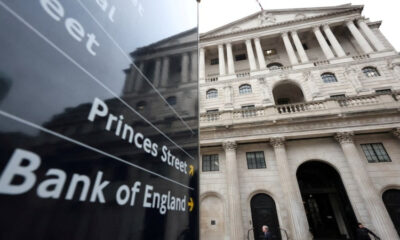Latest News
BoE’s Huw Pill Downplays Significance of Policy Language Shift

Bank of England Chief Economist Huw Pill said on Thursday that investors should not read too much into the central bank’s recent adjustment in language around its monetary policy outlook, emphasizing that decisions on interest rates remain finely balanced.
Speaking after the release of the Bank’s November Monetary Policy Report, Pill addressed questions over the removal of the word “careful” from the Bank’s description of its approach to interest rate adjustments. The latest report stated that the Bank Rate “is likely to continue on a gradual downward path,” but omitted the previous reference to a “careful and gradual” pace of easing.
Market participants had viewed the change as a potential signal that the Bank might move more decisively in lowering borrowing costs in the months ahead. However, Pill said the language shift should not be interpreted as a major policy pivot. “I wouldn’t overstate the significance of that change,” he told reporters in London, noting that the broader message of caution and data dependence remains intact.
The Bank of England held its main interest rate steady in November but reiterated that future adjustments would depend on incoming data related to inflation, growth, and labor market conditions. The decision reflected growing confidence that inflationary pressures are easing, even as policymakers remain wary of premature rate cuts that could reignite price growth.
Analysts said Pill’s comments were aimed at tempering market expectations for rapid monetary easing. “The BoE is signaling that while the tightening cycle has likely peaked, it wants to avoid giving the impression that rate cuts are imminent,” said one London-based economist. “The language change may reflect a slightly more optimistic view on inflation, but it doesn’t suggest a rush to loosen policy.”
Pill noted that inflation, which peaked above 11 percent in 2022, has continued to fall toward the Bank’s 2 percent target, though services inflation remains stubborn. He also highlighted that wage growth, while easing slightly, is still running above levels consistent with stable inflation.
The chief economist reiterated that the Monetary Policy Committee remains divided, with some members concerned about growth risks while others focus on ensuring inflation expectations remain anchored. The committee’s latest forecasts suggest inflation could return to target by mid-2025 if interest rates are reduced gradually.
The Bank’s cautious stance mirrors that of other major central banks, including the Federal Reserve and the European Central Bank, both of which have signaled that they are nearing the end of their tightening cycles but are not ready to declare victory over inflation.
Financial markets currently expect the Bank of England to begin cutting rates around the second quarter of 2026, though Pill declined to comment on the timing. “We have to respond to the data as it evolves,” he said. “Our aim is to ensure that inflation returns sustainably to target without generating unnecessary volatility in output or employment.”
For now, the central bank’s message remains one of balance and patience. While the removal of a single word from its statement caught market attention, officials continue to emphasize that monetary policy decisions will hinge on evidence, not semantics.






















